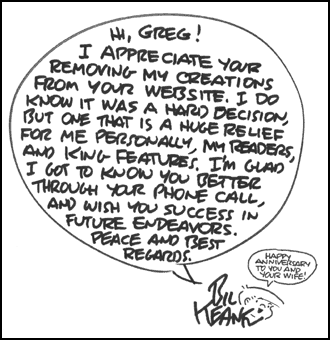
A funny thing happened when I found Reader’s Digest‘s list of the “Best Reads of 2011.” A post from my blog was #4 on the list!
Woody Allen wrote the #3 article on the list, and Roseanne Barr wrote the #13 article. (And I also recognized the names Christopher Hitchens and David Brooks). The editors of Reader’s Digest had selected “the most unforgettable articles” for the entire year from newspapers, magazines, and from the internet, but it still took me a while to fully accept what had happened. The “best reads” of the year came from The New York Times, Vanity Fair magazine, The Atlantic, National Geographic, and — from this blog!
I write this blog under a pseudonym — and I’d also used another pseudonym when I published a “short picture scrapbook” about my girlfriend’s dog. It’s kind of funny that the Reader’s Digest list apparently just used the dog book’s pseudonym for their list, which meant that the honor of authoring the #4 ‘best read’ of the year went to ‘Moe Zilla’, the non-existent persona I’d created for writing funny children’s picture books like “The Turkey Mystery Rhyme”. I was too shy to ask Reader’s Digest to correct the name — so I’m just changing this blog’s byline to “Moe Zilla” from now on. :)
The post they’d selected was about the cartoonist who drew the Family Circus comic strip. I’d started out lamenting how he’d published nearly 100 paperback collections of his newspaper comic strip — and yet none of them were available on the Kindle. But soon I was reminiscing about “my favorite memory” of cartoonist Bil Keane — and the day when a piece of kindness somehow magically escaped from his comic strip and found its way into the real world. (The editor of Reader’s Digest’s “Select Editions” called it “the touching story of a real and honorable gentleman.”)
But the truth is, I was sharing an actual memory of my own about the early days of the internet. Back in 1999, I was still caught up in all the excitement about the very first years of the web. And I’d laughed hysterically — till tears rolled down my cheeks — at some of the crazy new web sites that were springing up in my web browser. And yes, that included that very rowdy web site where anonymous strangers submitted “alternate” captions for Bil Keane’s Family Circus cartoons. But in a strange way, there was a real innocence to it. Pesky concepts like copyright infringement simply hadn’t occurred to a lot of people back in 1999.
An invisible community slowly started to grow around the act of re-captioning someone else’s cartoons. At one point, I’d heard that a handful of people even flew in to Chicago from all across the country — just to share that connection in real-life. (Before it was over, someone played a VHS tape of an animated Family Circus holiday TV special, and they’d all joked about it together.) I’m not sure any of them understood it as having a larger significance — beyond “It was really fun.” But I wonder sometimes if it was something special — a once-in-a-lifetime happening, the near-spontaneous formation of a massive grass roots comedy collective, united only by their strange, shared belief that this needed to happen.
After four years, there was almost a sense of tradition about it. (And to this day, there’s a rumor that all 50,000 of their captions are still being secretly passed around, preserved like a sacred text from the ancient 1990s.) That’s the forgotten piece of history that I think ultimately was left out of my story. That there was a very strong sense of community on that day when a lawyer showed up in their virtual village — and demanded that they all stop.
It was a “wild west” moment — but I mean that in the best possible way. In this strange new frontier, the villagers then gathered together to try to work out what was fair and what was right. There was some fretting and some chest-thumping, but there were also some very earnest and absolutely sincere discussions about the right to freedom of speech, and for their legally-protected right to create a satire. But it was a frontier moment in another way, because beyond all that high talk about powerful institutions — about a “body of intellectual property”, and the law firms defending it — were people.
“This showdown finally ended in the most unexpected way imaginable,” I wrote in my blog post. “One day the webmaster picked up his phone, and discovered he was receiving a call from cartoonist Bil Keane himself.”
The webmaster never revealed what they talked about, but “…as we got further into the conversation, I just realized I couldn’t really go on doing what I’m doing,†he wrote later on his web page. Bil Keane had simply surprised him. “He’s actually a nice guy….â€
Their 90-minute phone conversation may have disappeared into the mists of internet history. But maybe Reader’s Digest is right. Maybe it’s worth taking a moment to remember that day when a moment of Bil Keane’s genuine warmth somehow magically escaped from his comic strip – and found its way out into the real world.
